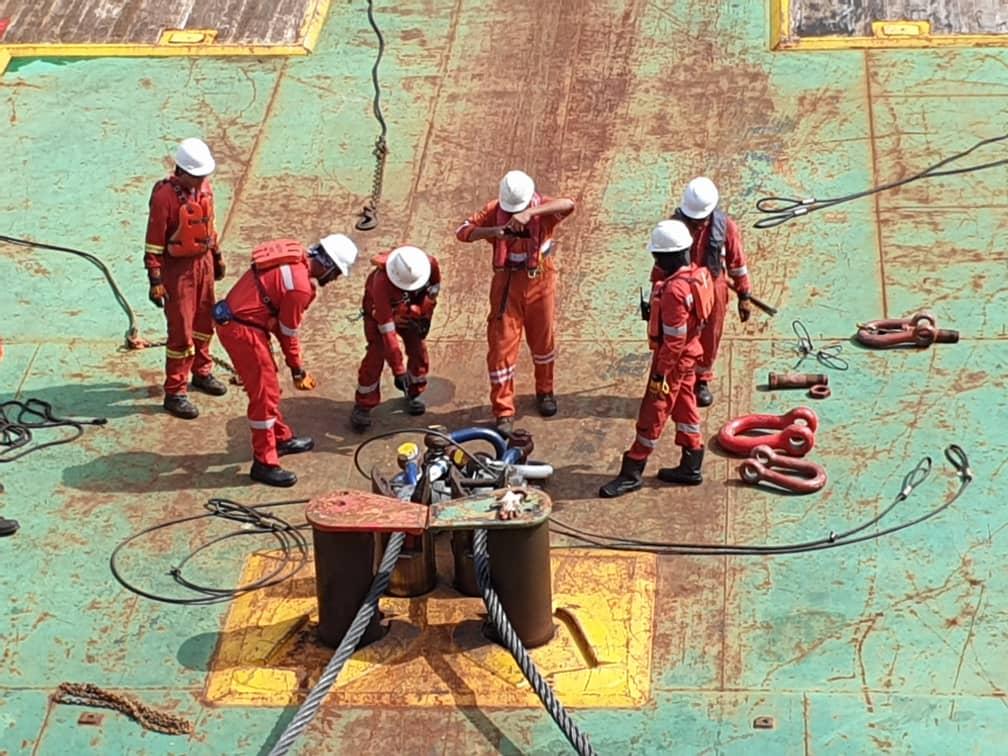Oil rig workers all at sea under weight of pandemic measures
Some have not seen their families for the better part of a year thanks to schedule disruptions and mandatory quarantine periods.
Just In
While millions of Malaysians have spent more than a month locked down in a bid to bring down the daily number of Covid-19 cases, far out to sea, another group of people has been cut off from social contact as well.
For this small group of workers, life on the ocean waves means being stuck on an oil rig 24 hours a day, surrounded by thousands of valves controlling the flow and pressure of a delicately balanced system.
The smallest mistake could result in an oil spill or gas leak which in turn could spark an explosion.
A safety officer who asked to be known as Sazali said the mental pressure on the workers was a serious matter, especially since they had been separated from their families for weeks since the health ministry’s Annex 9 came into effect.
He said offshore workers would normally work for two weeks on a rig before being given the next two weeks off.

“When Annex 9 was enforced, every worker had to be quarantined at a hotel for 14 days before starting work on the rig,” he said.
“This disrupted the work schedule, and the company had to make a new schedule which put a greater burden on the workers.”
Under the new schedule, workers have two weeks off, then spend two weeks undergoing mandatory quarantine and the next four weeks on the rig.
“This means I have to be away from my family for six weeks. I only see them for two weeks out of two months,” Sazali told MalaysiaNow.
He said some of the workers had already begun to show signs of stress such as being lost in thought, shouting at the sea, squabbling and being short-tempered, exposing other crew members to the danger of accidents.
Ahmad, another worker currently under quarantine in Sabah, said he and his colleagues were under pressure due to the mandatory 14-day quarantine order.
“We have no guarantee of how many weeks we will have to work after that, because some of those who return from the sea test positive for Covid-19 as well.
“We have to work for two weeks straight because of disruptions to the work schedule,” he said.
To make matters worse, the internet facilities on the rig are none too dependable.
Ahmad said the 14-day quarantine order took away from the workers time that should have been spent with their families.

“Our wives and children are also under stress,” he said. “We have been away from them for a long time, but we have no choice as job opportunities on the ground are scarce.”
A marine administrator, Harry Teh, told MalaysiaNow that the disruptions to the schedule had also resulted in some of the workers missing their vaccination appointments.
“I tried to get them vaccinated through the marine department’s vaccination drive in conjunction with the International Day of the Seafarer, but we were rejected as they said we were technical crew, not marine crew.
“Malaysian seafarers serving on non-Malaysian ships were also not allowed to join the programme,” he said.
Teh said crews from Sarawak working in the peninsula had a worse time of it as they would be quarantined twice: one offshore quarantine period and another by the state disaster management committee.
“We have workers who have not seen their families for nine months,” he said.
“The life of an oil rig worker is like the life of a factory worker living in a dorm. When they return from the coast, they remain at a hotel in Kemaman until they are recalled.”

He suggested that PCR or RTK tests be administered to unvaccinated workers 72 hours before they depart for the rig.
For those who have received at least a single dose, he said, quarantine could be trimmed to seven days.
“On return, just take a swab test and quarantine them until the results are out,” he added.
Sazali said it would help if the quarantine period could be carried out at home instead of in a hotel.
“At least when we are on break, we can still be with our families even though we cannot go out.
“Our two weeks at sea could also be considered a quarantine as we do not mix with other people,” he said.
Subscribe to our newsletter
To be updated with all the latest news and analyses daily.
